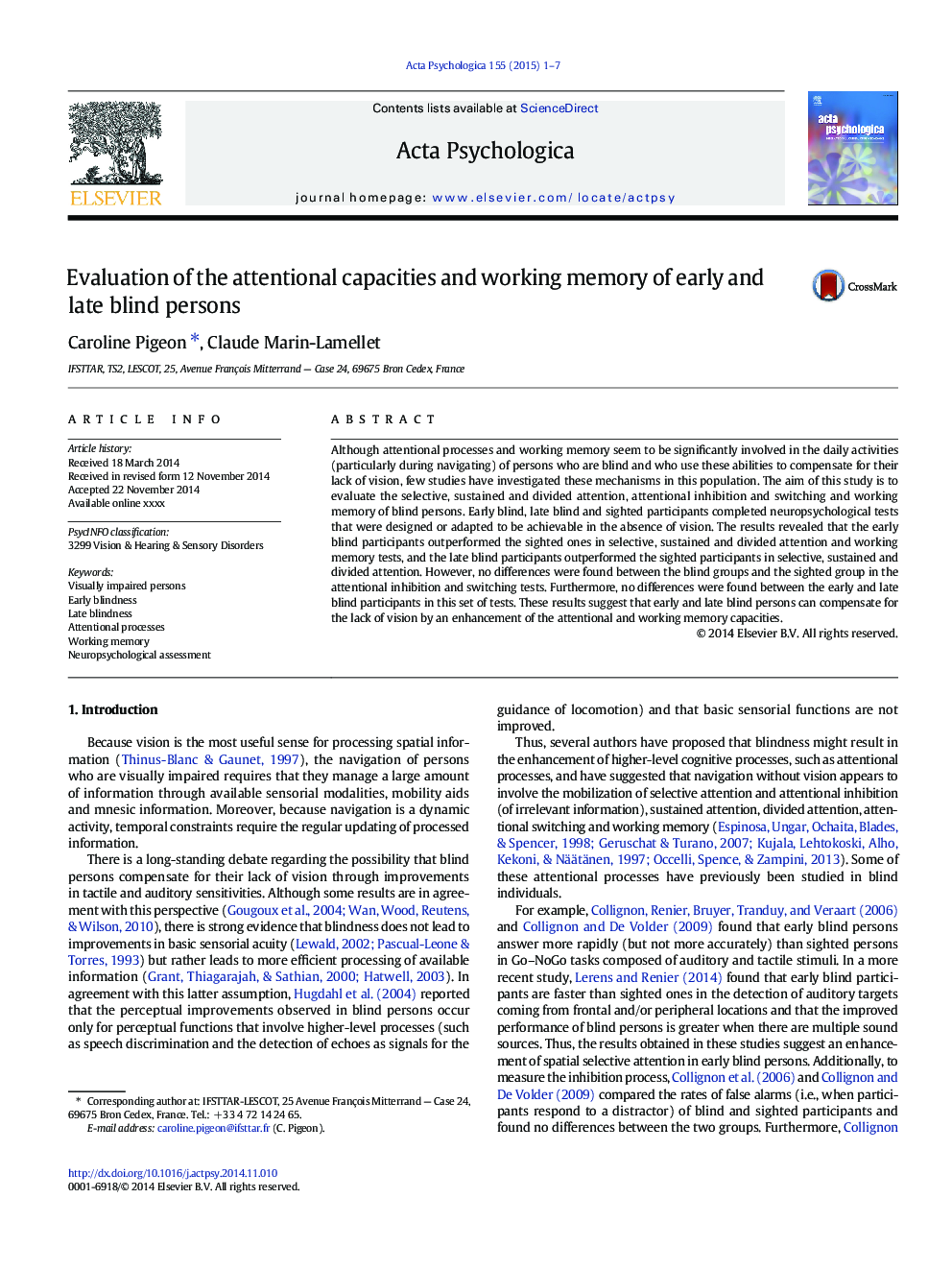| Article ID | Journal | Published Year | Pages | File Type |
|---|---|---|---|---|
| 7277468 | Acta Psychologica | 2015 | 7 Pages |
Abstract
Although attentional processes and working memory seem to be significantly involved in the daily activities (particularly during navigating) of persons who are blind and who use these abilities to compensate for their lack of vision, few studies have investigated these mechanisms in this population. The aim of this study is to evaluate the selective, sustained and divided attention, attentional inhibition and switching and working memory of blind persons. Early blind, late blind and sighted participants completed neuropsychological tests that were designed or adapted to be achievable in the absence of vision. The results revealed that the early blind participants outperformed the sighted ones in selective, sustained and divided attention and working memory tests, and the late blind participants outperformed the sighted participants in selective, sustained and divided attention. However, no differences were found between the blind groups and the sighted group in the attentional inhibition and switching tests. Furthermore, no differences were found between the early and late blind participants in this set of tests. These results suggest that early and late blind persons can compensate for the lack of vision by an enhancement of the attentional and working memory capacities.
Related Topics
Life Sciences
Neuroscience
Cognitive Neuroscience
Authors
Caroline Pigeon, Claude Marin-Lamellet,
